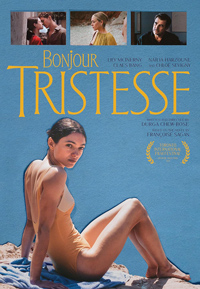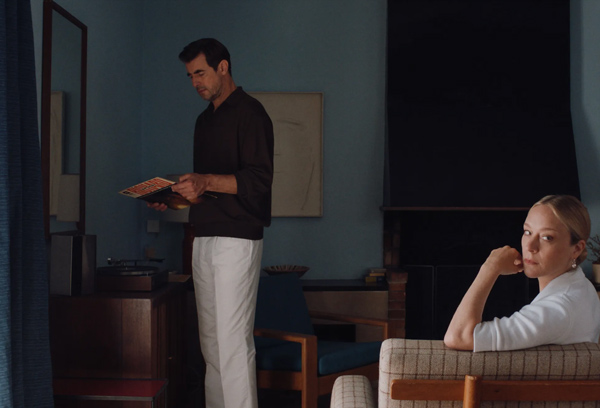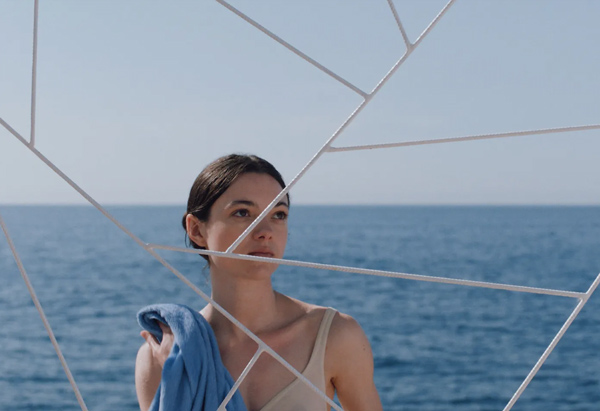Lifestyles of the Rich, Conflicted & Coddled: Dull Vacation in the South of France for Debut
 Ah, summer in the south of France. The cerulean waves of the Baie de Cassis, bowls overflowing with strawberries, and warm evening breezes swimming like an embrace as wine turns your lips red. It sounds like a dream, a perfect setting in one of the most beautiful places on Earth to unwind. Unless, you’re one of the wealthy, privileged people in the latest adaptation of Francois Sagan’s Bonjour Tristesse. Committed to spending the season projecting curdled resentment and lashing out with passive-aggressive iciness, Durga Chew-Bose’s film is an unpleasant time spent with even more unpleasant people.
Ah, summer in the south of France. The cerulean waves of the Baie de Cassis, bowls overflowing with strawberries, and warm evening breezes swimming like an embrace as wine turns your lips red. It sounds like a dream, a perfect setting in one of the most beautiful places on Earth to unwind. Unless, you’re one of the wealthy, privileged people in the latest adaptation of Francois Sagan’s Bonjour Tristesse. Committed to spending the season projecting curdled resentment and lashing out with passive-aggressive iciness, Durga Chew-Bose’s film is an unpleasant time spent with even more unpleasant people.
Cécile (Lily McInerny) is an 18-year-old without a worry in the world. She is the sun in her father Raymond’s (Claes Bang) universe, and they share an intimacy that is extremely close, but never scandalous. Some might cock an eyebrow at the freedom he allows his daughter that some might call irresponsible, but what North Americans might view as “European.” Cécile is free to smoke and drink, date the handsome local boy Cyril (Aliocha Schneider), and generally do as she pleases. Even the lackluster results of her college entrance exams don’t worry her father; Raymond believes she’ll figure everything out when she’s ready. As they summer in a ridiculously gorgeous villa right on the waters’ edge, they’re joined by Raymond’s girlfriend/lover/companion Elsa (Naïlia Harzoune). It’s a relationship he’s in no rush to define. The trio enjoy a terrifically idle and picturesque time until, one day, at Raymond’s half-hearted invitation Anne (Chloë Sevigny) shows up. A close friend of his late wife, Raymond and Anne have enough shared history that it soon upsets the balance, pushing Elsa out of the way, and forcing Cécile on a path to break up the pair.

Operating entirely at a surface level, with cinematographer Maximilian Pittner’s camera gazing longingly and lovingly over the magazine spread-worthy production design by François Renaud-Labarthe, it’s difficult to penetrate the interiority of these characters (even if much of what vague feelings they have are literally spoken in often clunky dialogue). It’s hard to see why we should care about any of the drama playing out between this quartet who seem determined to have a terrible time with each other.
Anne causes friction with Elsa by suddenly taking on a Mother role, pushing schoolwork on the young woman, and putting an end to her time with Cyril. Maybe if Cécile were younger, fighting for the adulthood she has not yet reached, and her fling with Cyril had a bigger air of potential indignity, that conflict would play sharper. Instead, Anne comes off as a shrew, and it’s an odd fit for a charismatic actress like Sevigny to play (not to mention, that as a world-famous fashion designer, she dresses rather matronly). And while Elsa is initially hurt by being unceremoniously dumped by Raymond, she recovers almost immediately. There’s no sexual friction between the battling lovers, and though Elsa participates in Cécile’s scheme to break up Raymond and Anne, it seems powered more by idle curiosity than a biting desire for revenge.

Burnished by equally detached performances (save McInerney, lively and eager) Bonjour Tristesse is aching for something — anything — to crack the porcelain surface of these wildly uninteresting characters and their wholly uninvolving problems. The issue with Chew-Bose’s adaptation is that in giving the story a contemporary setting, it only further underscores its antiquated nature. The film needs something to really spark the scenario to life and imbue it with a sense of smoldering danger. One wonders if it was injected with some class struggle — perhaps if Cyril or Elsa weren’t also coddled and well-to-do — to bring some stakes and strife to the proceedings, if that would force the characters to actually contend with the values they take for granted. As it stands, Bonjour Tristesse is like watching a table decide which bottle of champagne to order when you can’t even afford a glass.
Reviewed on September 6th at the 2024 Toronto International Film Festival – Discovery Programme. 110 Minutes.
★★/☆☆☆☆☆


